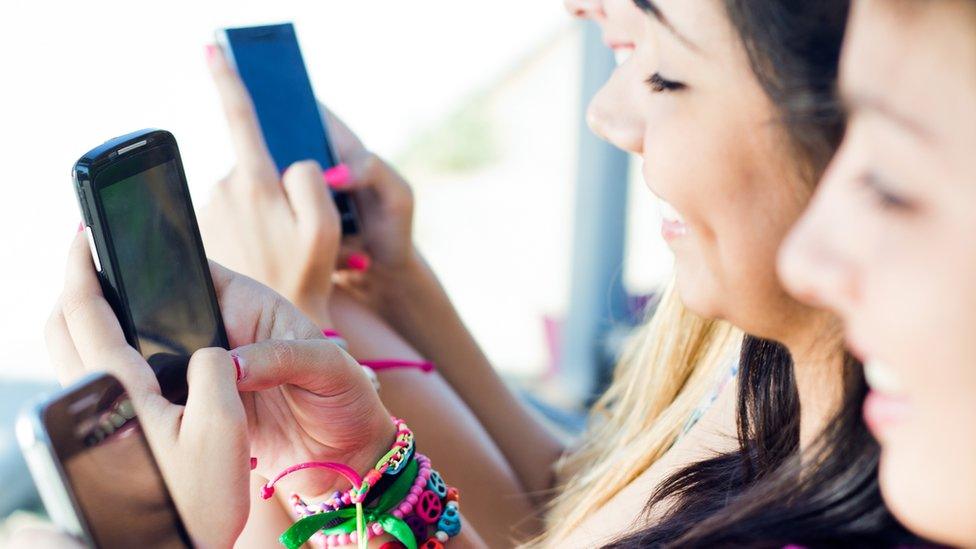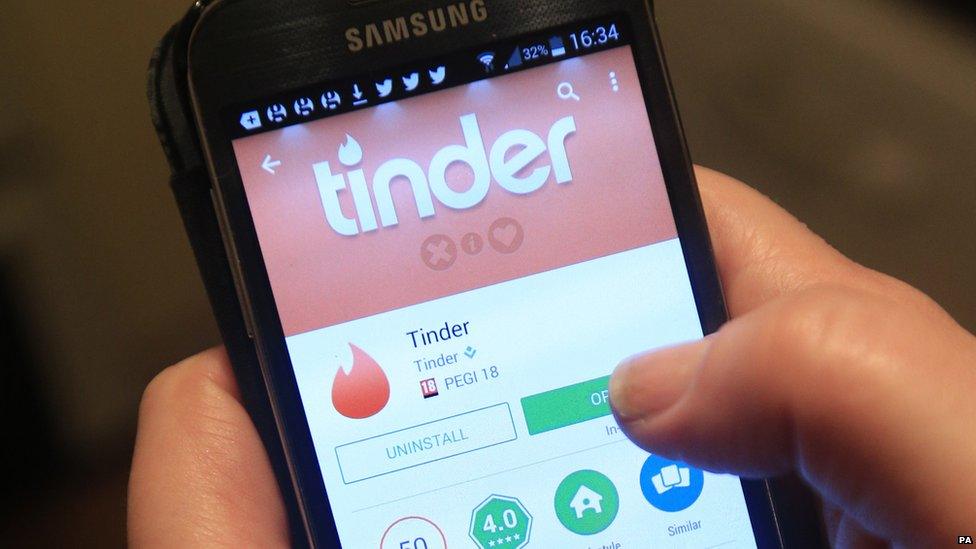Tinder is stopping teenagers from using the dating app
- Published

Until now teenagers have been able to communicate with each other on Tinder in a protected area, only available to people aged 13 to 17.
Now the dating app is putting a stop to this service, with the change taking effect next week.
Tinder says it believes this is the "right thing to do" to protect under-18s.
Users sign up to the service with their Facebook accounts, which includes details of date of birth.
The idea was that they would only be matched with people in the same age bracket - but, of course, older users might not tell the truth about their age.
"On a platform that has facilitated over 11 billion connections, we have the responsibility of constantly assessing our different user experiences," said Tinder VP of Communications Rosette Pambakian in a statement given to Newsbeat.
"Consistent with this responsibility, we have decided to discontinue service for under 18 users.
"We believe this is the best policy moving forward."

An NSPCC spokesman said: "We welcome Tinder's decision to raise the age of users.
"It was deeply worrying that a dating app allowed children below the age of consent to use their site, which put them at risk of being contacted by much older users.
"However, for this decision to be effective there needs to be robust age verification tools across all platforms so that users cannot falsify their age - otherwise this risks becoming a hollow gesture."
Tinder is rated by Apple's App Store as suitable for users aged 17+. On Android it has an 18 rating.
Earlier this year it was revealed the number of reported crimes where dating apps are mentioned had increased more than sevenfold in the past two years.
The figure came from 30 police forces in England and Wales who responded to a Freedom of Information request from the Press Association.
The reported crimes included rape, grooming and attempted murder.
Tinder was mentioned in 277 reports of crimes in 2015 - up from 21 in 2013.
At the time, Tinder told Newsbeat: "People with bad intentions exist in coffee shops, bookstores, on social media and social apps.
"Tinder has become one of the largest social platforms in the world, responsible for 10 billion connections in just the last few years, and therefore we are not immune to this, despite the fact that it represents a miniscule percentage of our experiences."
Find us on Instagram at BBCNewsbeat, external and follow us on Snapchat, search for bbc_newsbeat